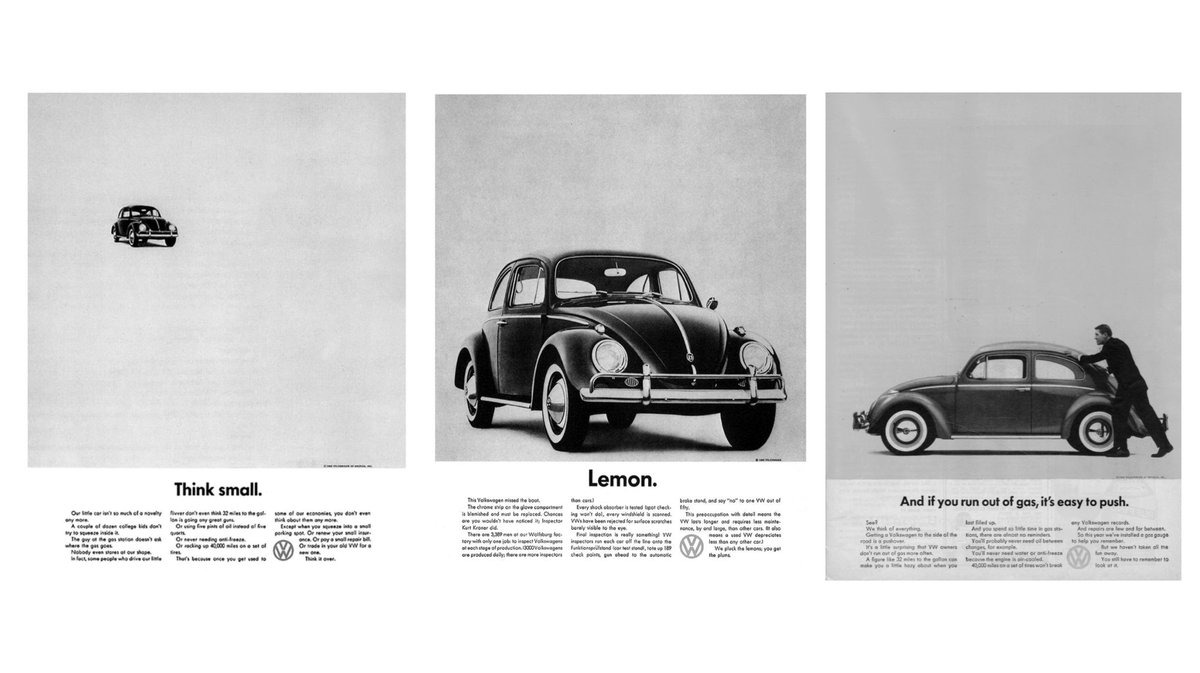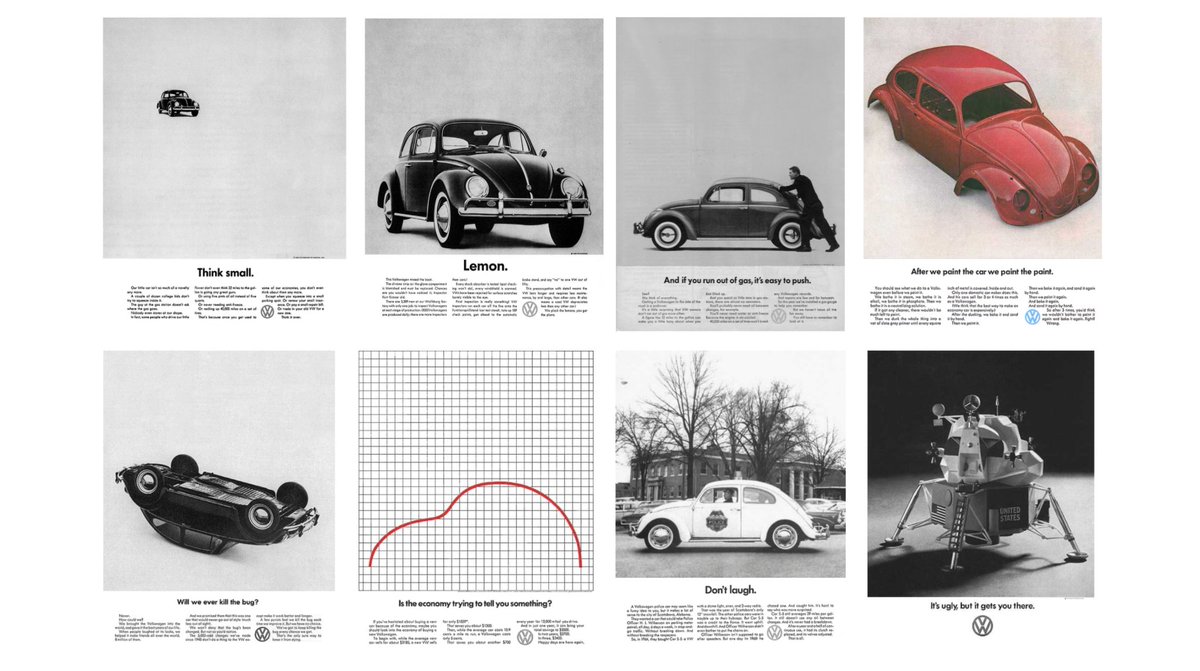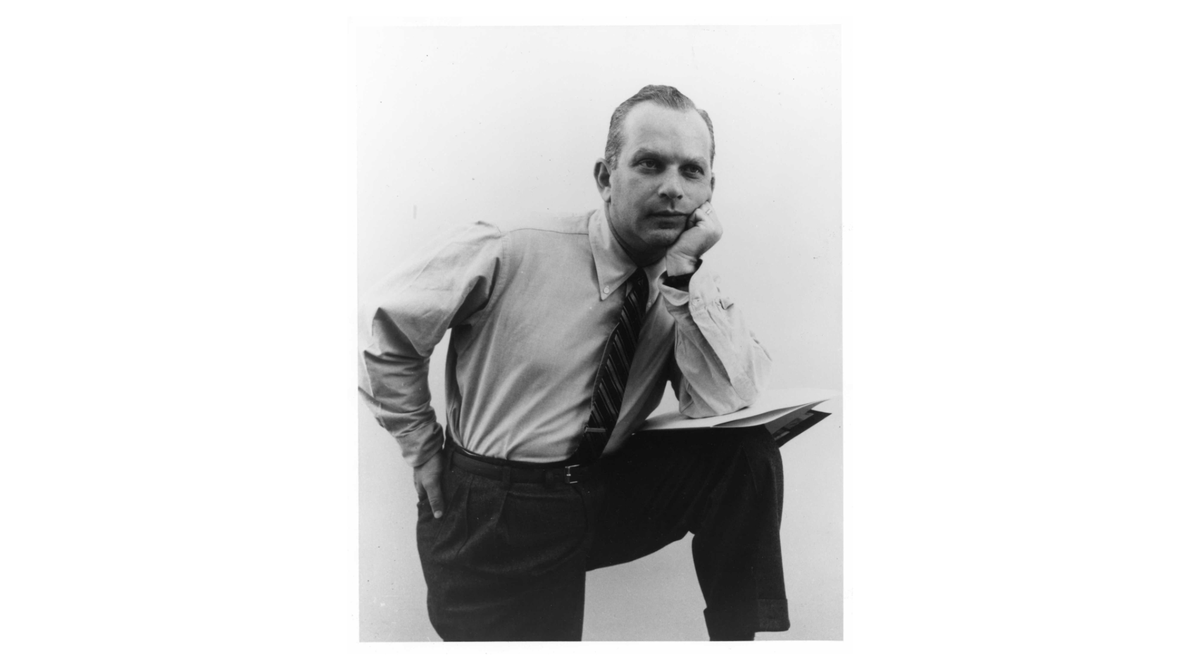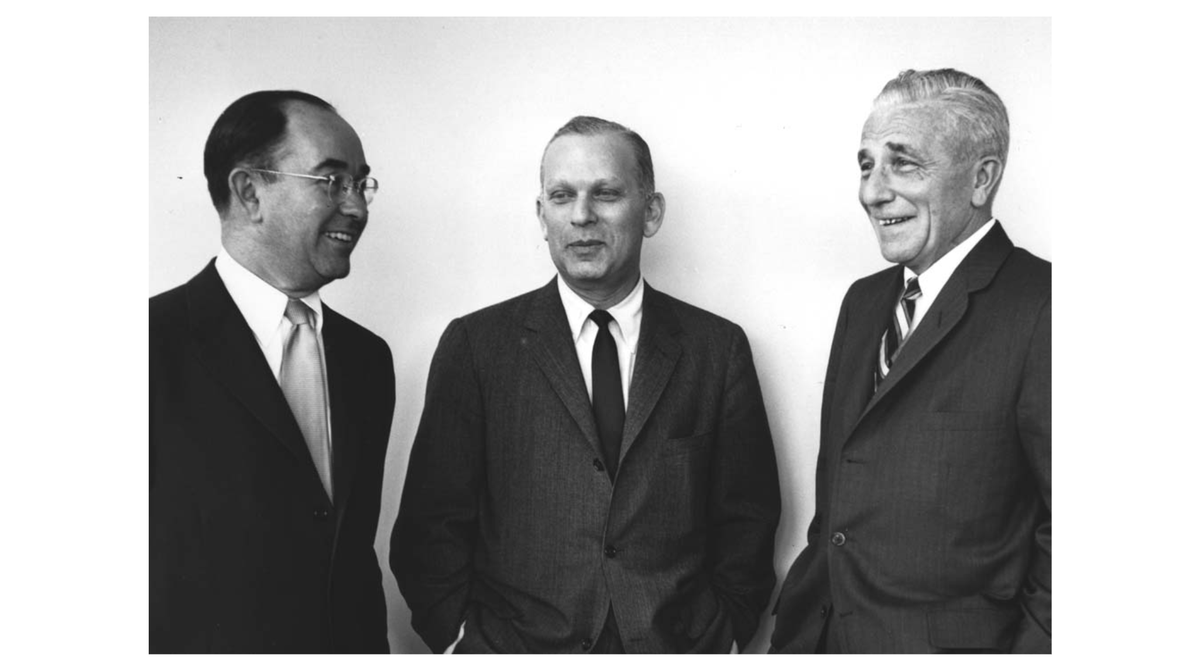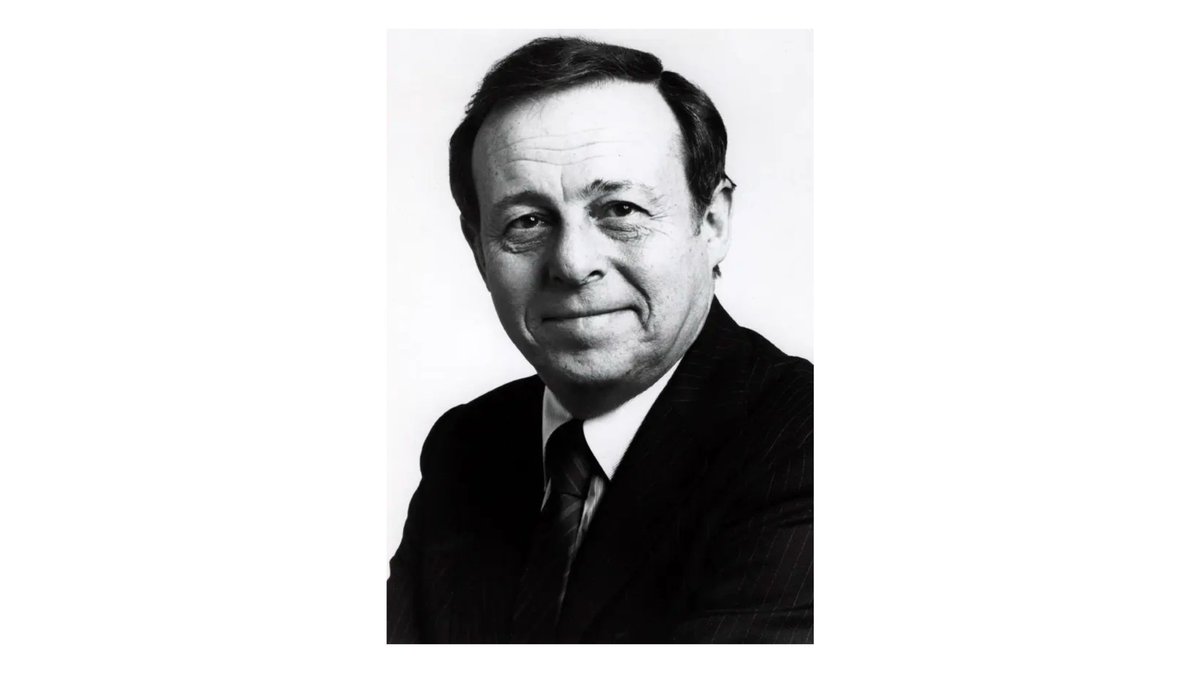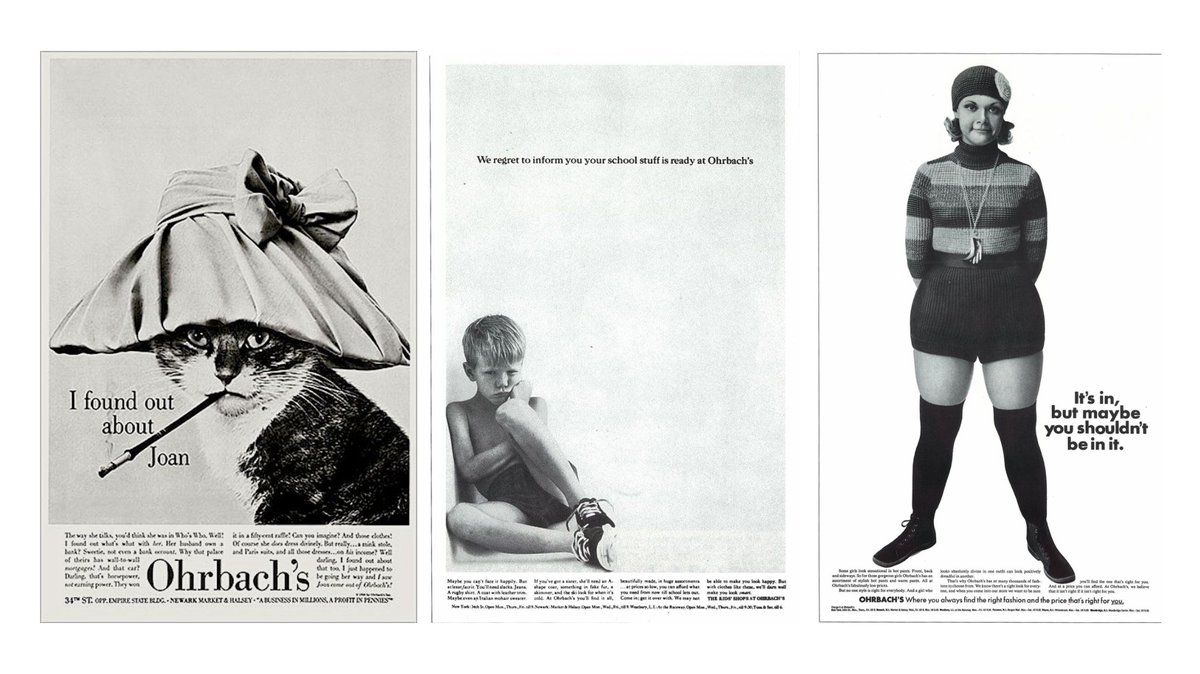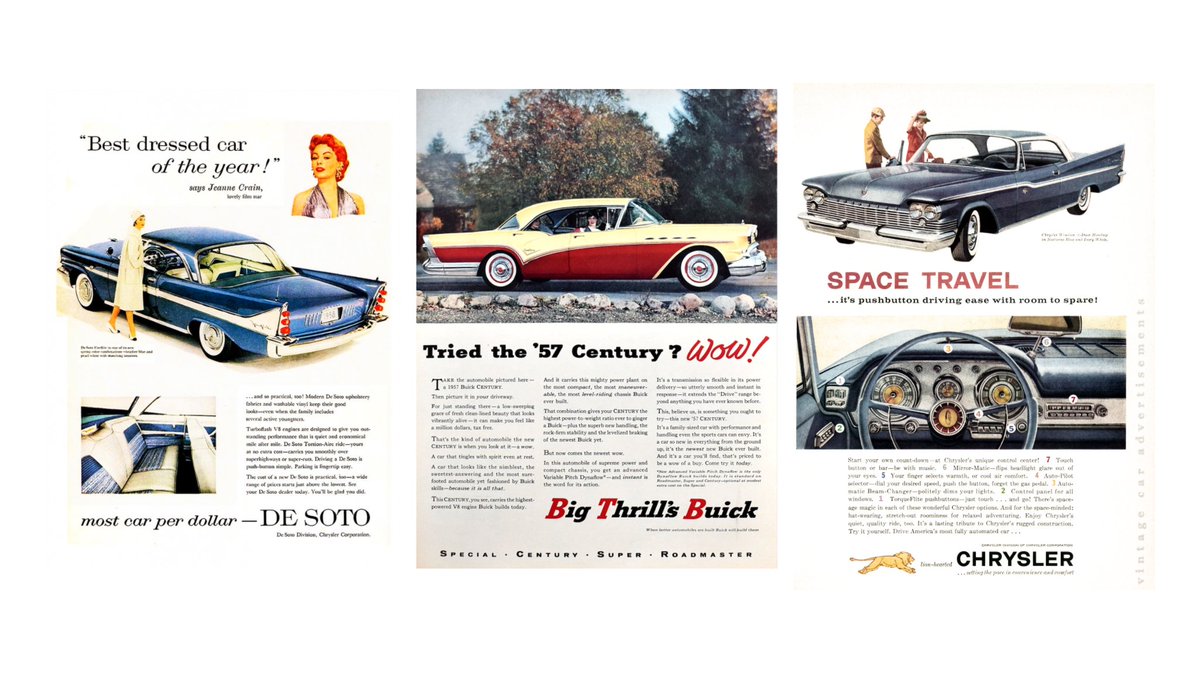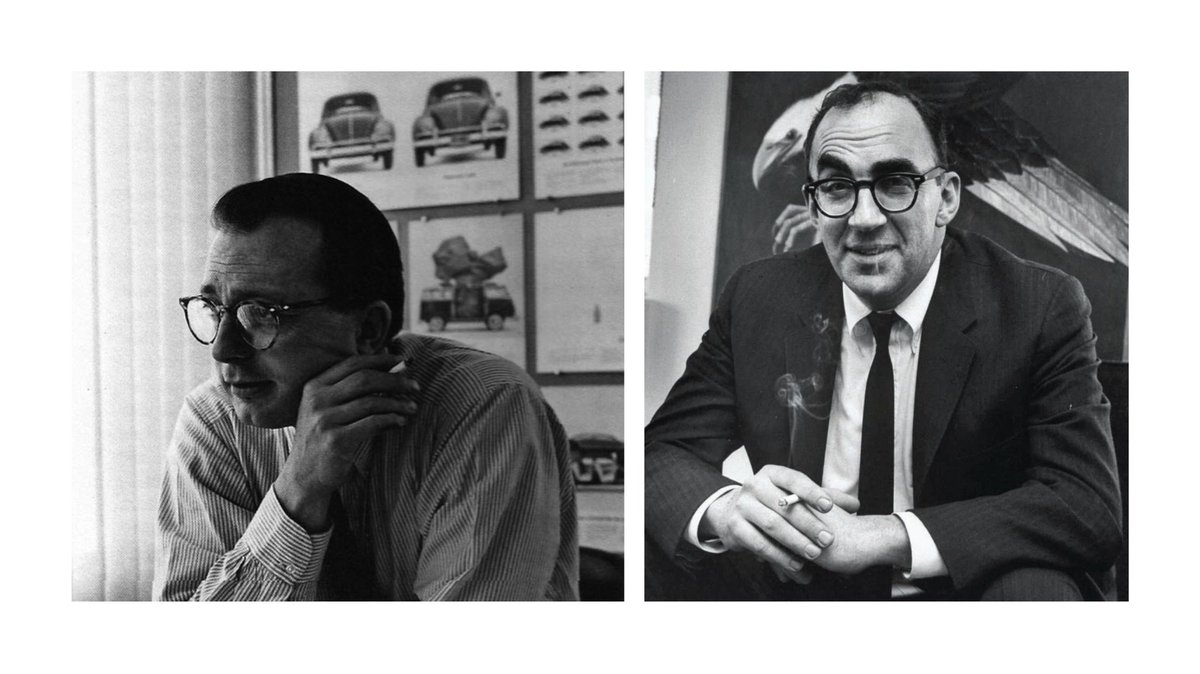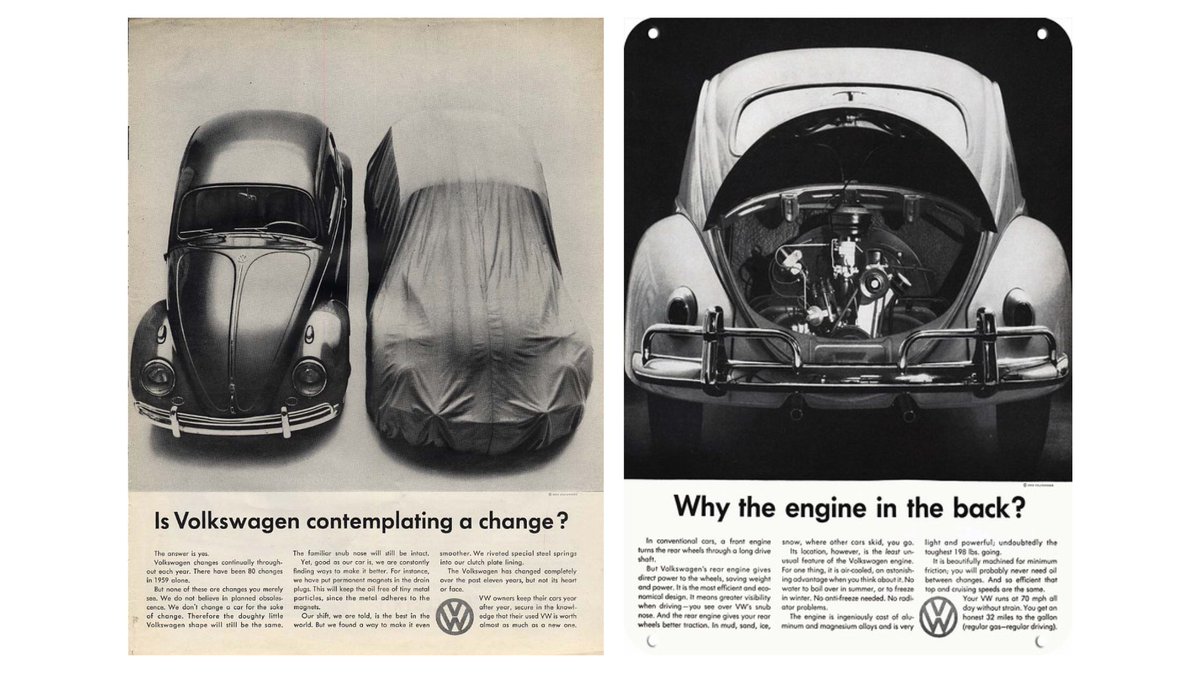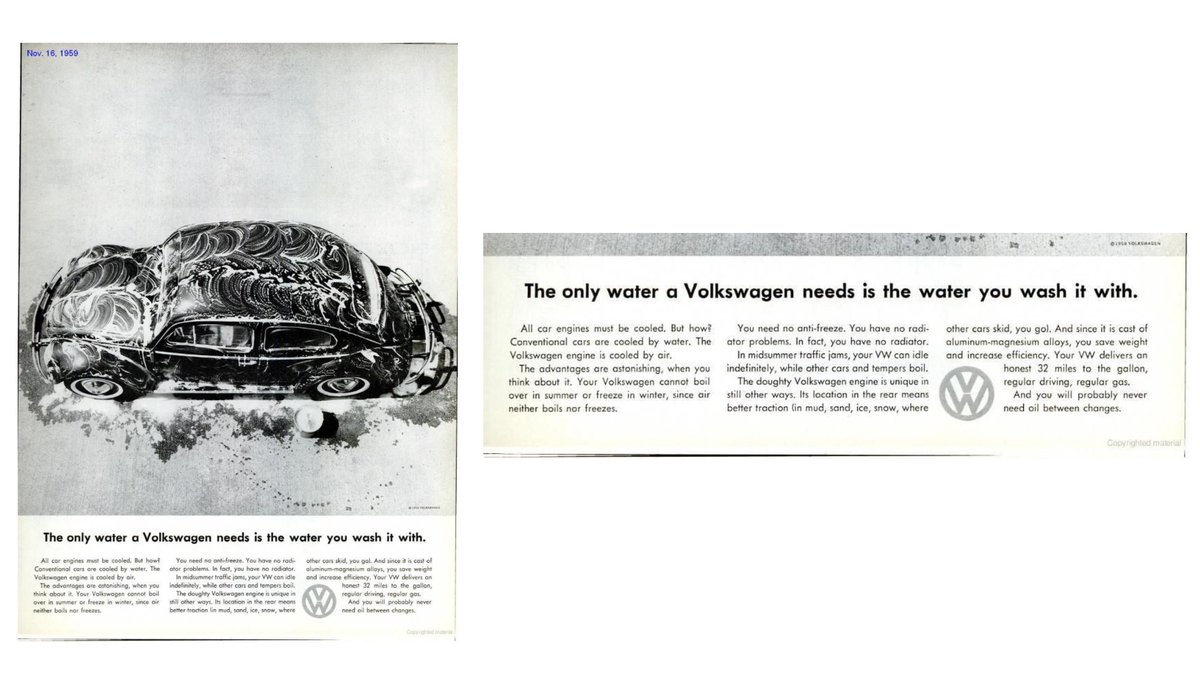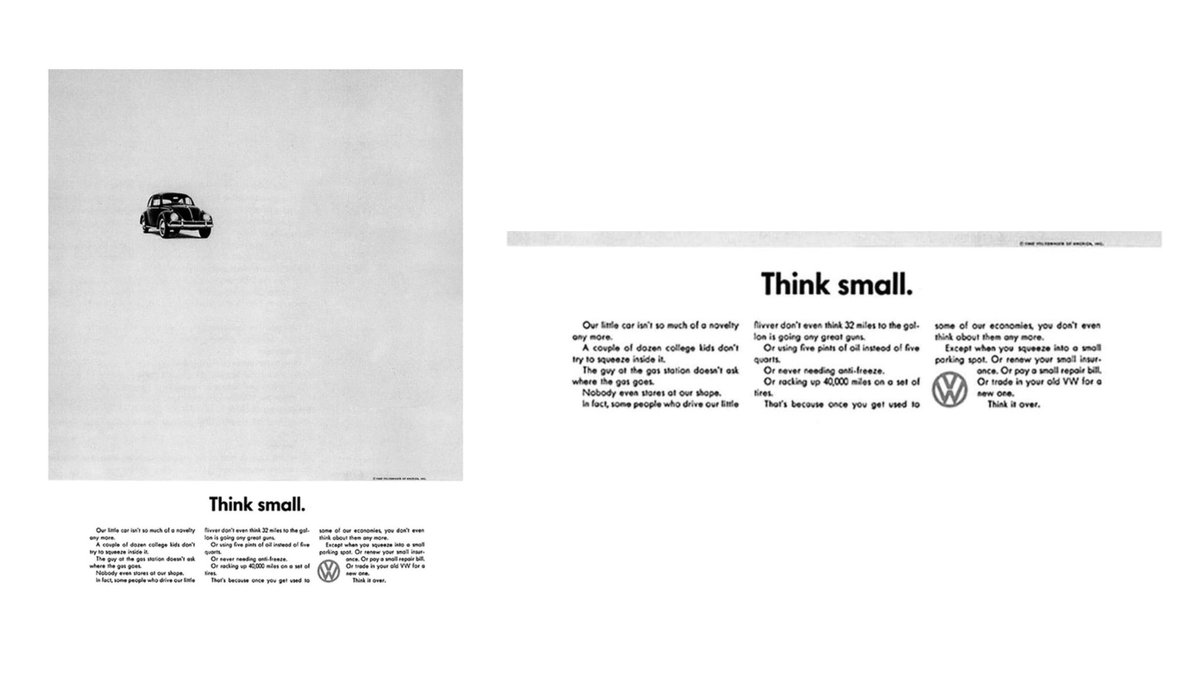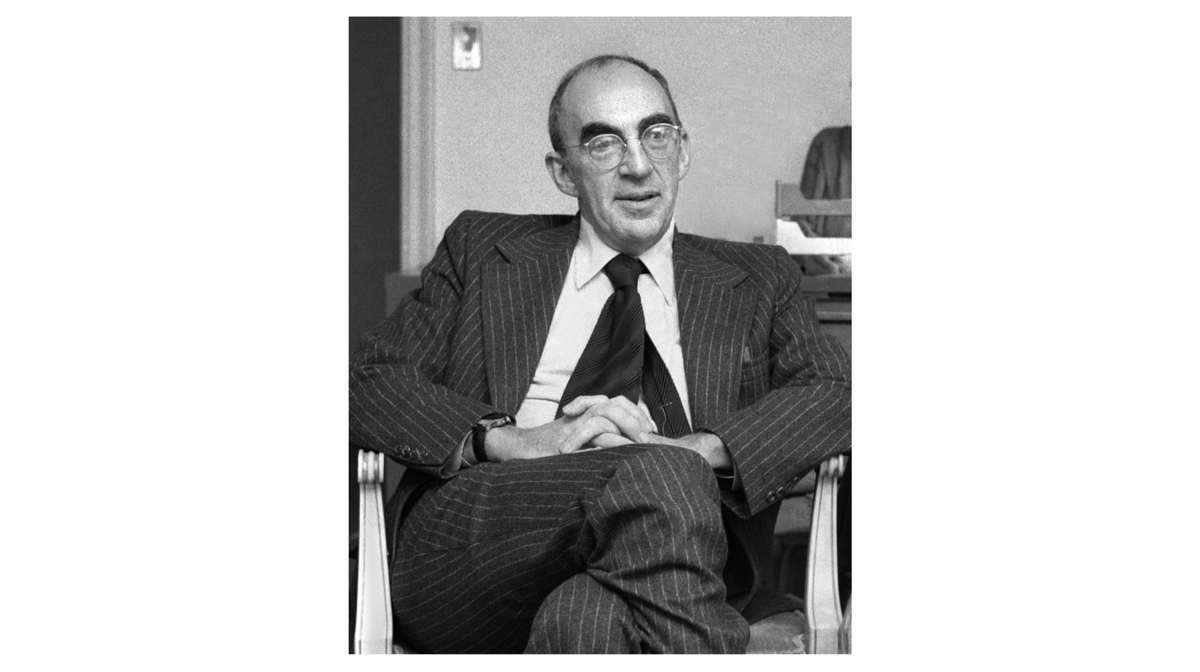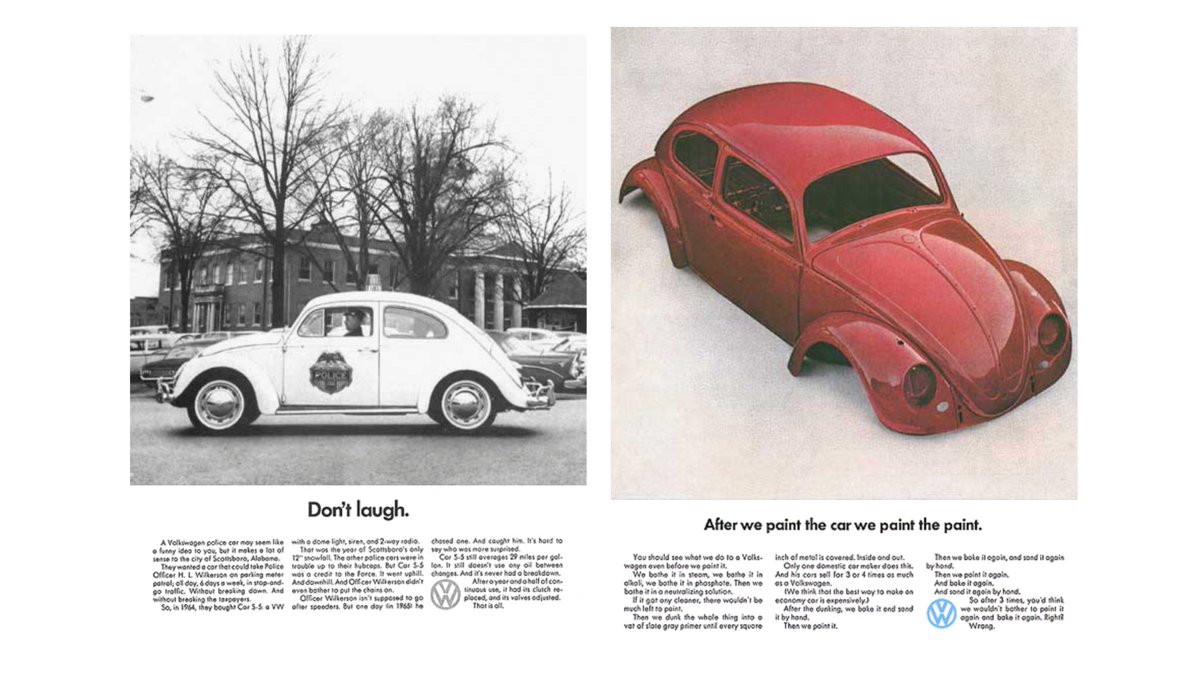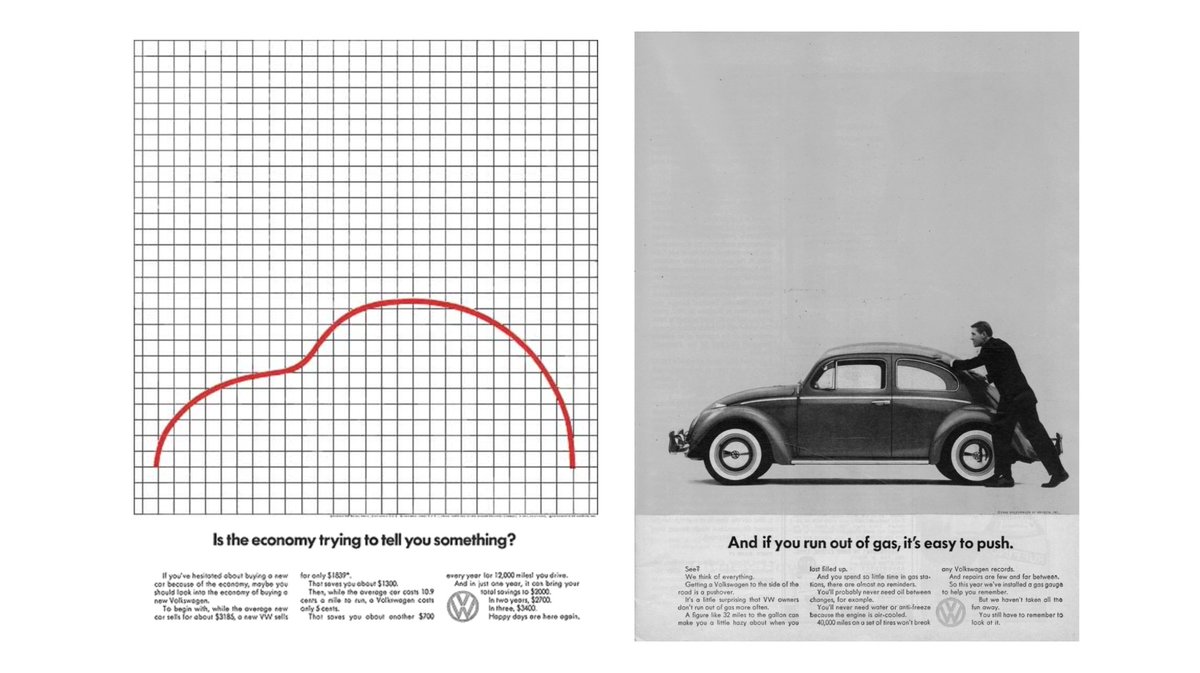The ‘Think Small’ campaign. EXPLAINED.
A thread explaining the impact of the most influential advertising campaign of all time.
A thread explaining the impact of the most influential advertising campaign of all time.
1) The advertising industry would be a different industry today if ‘Think Small’ had never existed. Likely our rich creative history would be a bit poorer.
2) The ads served not only to sell a car, but also showed the potential of the advertising industry to the general public. We see its effects to this day every time we pitch an idea to our sweet clients.
3) Executions of the campaign include arguably the most influential print ad ever conceived and the best TV ad ever created (or maybe it is Guinness the ‘Surfer’, who knows?).
4) ‘Think Small’ was a series of print and television adverts for the Volkswagen Beetle starting in the late 1950’s up until the 70s. The campaign was devised by Doyle Dane Bernbach (DDB).
5) The brief from the Volkswagen (VW) clients to Bill Bernbach and friends was clear: make the Beetle compete with the giant Detroit car manufacturers with a decimal of the budget.
6) But years before they started working on the brief, DDB had to lay out a new form of advertising. And that could only come from a new form of agency.
7) Bill Bernbach left Grey in the late 1940s to start DDB arguing how frustrated he was with the agency’s bureaucracy. I bet some of us can relate to that.
8) Bernbach (center) took Ned Doyle (right), who worked with him at Grey, and Mac Dane (left) and DDB was open for business in 1949.
9) From the start, the agency had a clear philosophy: “We would only present one campaign. Maybe that was cockiness, but it seemed like faith in our work, we used to say, ‘Sorry, we’re not going to show you our wastebasket.’” said Bob Levenson, one of DDB’s early employees.
10) DDB showed their creative chops mainly by the continuation of Bernbach’s work for Ohrbach& #39;s, a department store that was becoming as popular as Macy’s in the 50s but with a much lower investment in advertising.
11) The work for Ohrbach’s was entertaining, self-deprecating and honest. This combination prompted VW to consider DDB as the agency to promote their weird little car in America.
12) In the 1950s (like today I guess) Americans were attracted to big cars. The bigger the car, the bigger the status attached to it.
VW needed a new way in. And that’s why they went to meet the DDB team at their offices.
VW needed a new way in. And that’s why they went to meet the DDB team at their offices.
13) What DDB delivered during their pitch meeting was specifically a glass of water to each client and a showreel of their current work. No speculative work was ever presented to VW.
14) Bill Bernbach was convinced that if a potential client wasn’t able to judge the agency from the work it was doing for its current clients, they would not be able to judge good work at all. Makes sense, doesn’t it?
15) DDB got the business. And Helmut Krone (left) and Julian Koenig (right), the creative team behind the initial ads, got the brief that would’ve changed the industry forever. I don’t think they got many free weekends after that.
16) “Is Volkswagen contemplating a change?” was the first ad of the campaign. Followed by an advert explaining why the Beetle had its engine on the back. It was a good start.
17) The campaign started to pick up pace with its sixth ad, “The only water a Volkswagen needs is the water you wash with.” The tone of voice was starting to become clearer.
18) Next up, the client briefed DDB on an ad to appear at the New Jersey chamber of commerce journal. At this moment, the most influential ad of all time started to become a reality.
19) The result was ‘Think Small’. The kind of ‘anti-ad’ that many industry publications voted the best ad of the 20th century.
20) ‘Think Small’ was creatively unfair to the other car brands. VW could advertise what seemed like weaknesses as product attributes. Something the Detroit giants couldn’t do.
21) And to think that ‘Think Small’ was a line suggested by an account person…
22) The campaign got extended to the new hot channel in town in the 60s: television. The brilliant ‘Snow Plow’ was created in 1964 and some folks think it’s the best TV ad of all time.
23) Then ‘Funeral’ was released in 1969, which some other folks think it’s the best TV ad of all time. See a theme here?
24) ‘Funeral’ tattooed into the mainstream the values that VW was proposing, of frugality and simplicity. Thus making the American dream ideas that Detroit was still communicating feel outdated.
25) Julian Koenig expressed it way more succinctly than I can. “By buying a Volkswagen you could take an inverse delight in not having to keep up with the Jones’…”
26) As the campaign reached its apex in popularity, it contributed to the cultural change of the 60s. A movement away from the materialism of the baby-boom years towards more idealistic views.
27) “Each ad wasn’t only created to sell the Beetle—it also set out to prove that advertising has a right to exist, because, fundamentally, it is born lacking one.” as Dominic Imseng puts in his really good book about the campaign.
28) Cynicism towards advertising was defeated in the case of ‘Think Small’ because the campaign created value. The ads were funny. Self-deprecating. Interesting. Informative. And they were not trying too hard.
29) ‘Think Small’ subverted the laws of advertising at that point. The image of the perfect product to the perfect consumer was rejected in favour of a more real way of selling a product.
30) While it seems the ad industry today is focused on saving the world, ‘Think Small’ proved that starting a valuable conversation with the public on behalf of the right brand is a more tangible and worthy goal.

 Read on Twitter
Read on Twitter